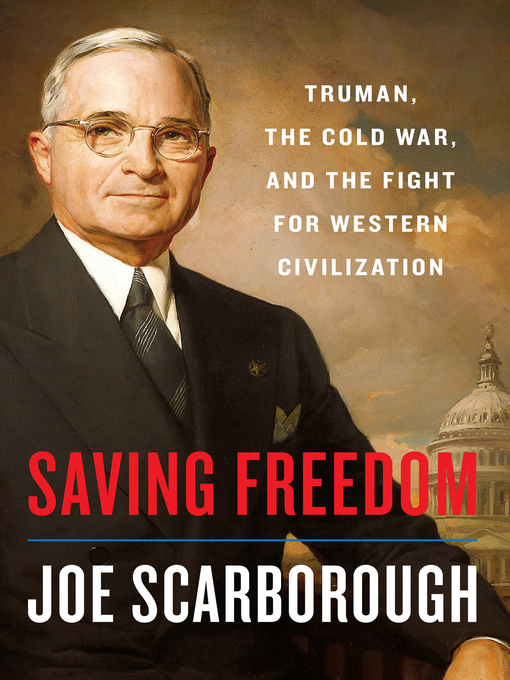
Saving Freedom
Truman, the Cold War, and the Fight for Western Civilization
کتاب های مرتبط
- اطلاعات
- نقد و بررسی
- دیدگاه کاربران
نقد و بررسی

June 1, 2020
Morning Joe host Scarborough, a former member of the House of Representatives, here examines President Harry Truman's first year in office. Truman might have been intent on "saving freedom," but he surely faced challenges: many parts of the world were still climbing out of the rubble, and the Cold War loomed. With a 200,000-copy first printing.
Copyright 2020 Library Journal, LLC Used with permission.

November 1, 2020
The story of the aid program that helped launch the Cold War. MSNBC host and former congressman Scarborough reminds readers that 1947 began with Americans basking in peace after the end of World War II less than 18 months earlier, and the budgets for the armed forces were slashed drastically. This was the scene in February when the British Foreign Office delivered two notes described as "shockers" by undersecretary of state Dean Acheson. They summarized events in Greece, which was impoverished and reeling under a communist-led civil war, and Turkey, threatened by Soviet expansion. Britain had long provided their support, but, bankrupt after the war, it could do so no longer. Tactfully, British leadership suggested that America step in to prevent those nations from falling to the communists. Acheson showed the notes to Harry Truman, who agreed that the circumstances required action. Scarborough delivers a lively blow-by-blow account of Truman's consultations with advisers and meetings with congressional leaders, including Sen. Arthur Vandenberg (whom the author clearly admires), formerly a hidebound Republican isolationist but a convert to internationalism who won over many of his colleagues. There followed Truman's famous March 12, 1947, address before Congress urging aid to Greece and Turkey; the president proclaimed that America "must assist free peoples to work out their own destinies in their own way." Isolationist Republicans were opposed, as were liberal democrats, who urged that the matter be turned over to the U.N. and pointed out that Greeks were not "free" but ruled by an unpleasant autocrat. In the end, with Vandenberg's backing, the aid passed, and the Truman Doctrine was born. Defeating Greek communist rebels turned out to require several years, during which Truman returned America to world leadership with actions such as the Marshall Plan, the founding of NATO, and the defense of South Korea from the North's invasion. Solid American history and another feather in the cap of Truman, whose presidential reputation is rising steadily.
COPYRIGHT(2020) Kirkus Reviews, ALL RIGHTS RESERVED.

November 16, 2020
MSNBC host Scarborough (Rome Wasn't Burnt in a Day) delivers a brisk and informative look at the development of the Truman Doctrine. In 1947, Great Britain, which had been economically devastated by WWII, informed the Truman administration that it couldn’t provide much-needed financial aid to Greece and Turkey. Secretary of State George Marshall and his top deputy, Dean Acheson, recognized the importance of providing humanitarian assistance to the two countries, which the Soviet Union wanted to add to its sphere of influence. If that happened, Marshall and Acheson argued, other countries in the Middle East and Western Europe might soon follow. The broader rationale behind their recommendation for U.S. intervention was accepted by President Truman, even though it meant transforming “America’s conception of itself and its role in the world” and becoming “an active participant in the political affairs of other nations.” Though that role is now commonly accepted, Scarborough expertly details the behind-the-scenes politicking that made it happen, paying special attention to the role of Republican senator Arthur Vandenburg, who charted a new, internationalist direction for his party. Though it breaks little new ground, Scarborough’s vivid account will appeal to readers who long for a new era of bipartisanship in American politics.

























دیدگاه کاربران